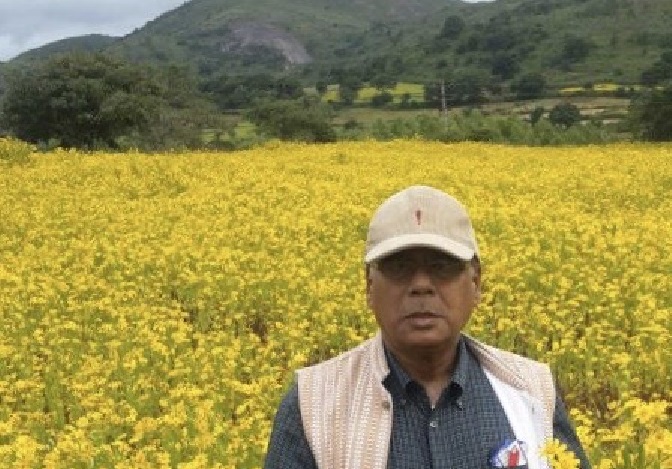
The Issue:
Ever increasing edible oil imports – increased from <5% of the total use in 1990s to 66% in 2016, one of the reports from NITI Aayog as appeared in Business Standard.
The Observations:
It requires little speculation to establish that imports of agri-commodities in India are usually not in the interest of consumers, but mostly done with political considerations. The import culture of the government and growing import of agri-commodities more particularly in Oilseeds and Pulses though unnecessary in majority of the cases, could have been avoided easily, has become a regular feature in the best interest of certain lobby, which is damaging Indian agriculture systematically and undermining the strength of farmers in an agrarian country!
It reminds me how India became close to self-reliant in edible oil by doubling the output from 7.0 million tons of oil to nearly 14.0 million tons in no time with the launching of First Technology Mission on Oilseeds (TMO) in 1986. The simple interventions were price incentive to oilseed growers, procurement guarantee and total restriction on import of edible oils. The stalwarts like Drs. M V Rao, P V Shenoy, Verghese Kurien, the ‘Father of White Revolution’ and many other stalwarts together brought ‘Yellow Revolution’ in the Country, and I had the privilege to work with them as Project Coordinator, AICRP, Groundnut (ICAR). But the heights of such achievements got flattened as the policy interventions did not suite to the then government. Consequently, Dr. Kurien resigned on the issue of buffer stockings of oilseeds and other contentious issues and thereafter, oil import regulations slowly got slacked and the footprints of the Mission washed away. Afterall, imports have become the first choice over indigenous self-sufficiency and the trend is on irrespective of governments that come to power and go. The same is true even after adding Pulses under the Technology Mission and renaming the same as TMOP. (My article and the Link)
We often remember Mahatma Gandhi ji and even celebrate ‘Salt Satyagraha, the turning point of the freedom movement, but compromise with the Country’s pride by undermining the farmers’ strength in making India self-reliant in food and edible oils by resorting to mindless imports! It’s high time that the most dynamic PM of this great Country may give a call for ‘Import Satyagraha’ declaring moratorium on agri-commodity imports for next five years and win back the confidence of millions of farmers, raising their sense of participation in building a New India, together.
Let there be a novel action plan for intensification of Oilseeds and Pulses production by tapping into the vast potential in new niches. For example, the intensification of Niger cultivation in the Eastern Ghats (as could be seen in the photo), aggressively intensifying extraction of Rice Bran Oil in major Rice growing states and promoting Cereals-Legumes/Pulses system in irrigated areas.
The Way Forward – Key Points:
- Introduction of State Specific Balanced Crop Plan based on annual demands of Cereals, Oilseeds and Food Legumes.
- Special incentives to farmers growing Oilseeds and Pulses and on procurement.
- Intensive production drive utilizing all the crop-seasons namely, Kharif, Rabi, Summer and Spring.
- Making buffer stocking in major production areas.
- Introduction of Tiny Oil Mills and Pulses Processing Units in major blocks/districts, linking FPOs to saturate local demands to the extent possible and thereby generating rural employments.
- Establishment of Rice-bran Oil Mills in major Rice clusters, all over India
- More emphasis on minor oilseeds namely, Niger, Linseed, Safflower and Rabi Pulses in nontraditional areas/seasons.
- Cutdown imports of Soybean oil, Palm oil, Canola, etc. drastically in a phased manner and impose total ban in next 2-3 years.
- Revive Growers’ Oilseeds Federation (GROFED), NDDB; declare as Nodal Agency to collect CSR Funds from the companies dealing with imports/marketing of edible oil and utilize funds for promotion of tiny oil mills and pulses processing units at village/district level involving FPOs.
Authored by
Dr. M S Basu, Ex Director ICAR;
Visiting Scientist, ICRISAT;
Consultant (Oilseeds), Govt of Iran;
UNIDO International Consultant on Aflatoxin (Malawi) Africa;
Independent Consultant (Business Planning & Development) NAIP (Funded by World Bank)
Email: [email protected]
Dr Mukti Sadhan Basu is a former director of the National Research Centre for Groundnut, Indian Council of Agricultural Research. He was also International Consultant on Aflatoxin Management, UNIDO and worked in Africa in that capacity. Presently he is Managing Director of SBSF Consultancy.